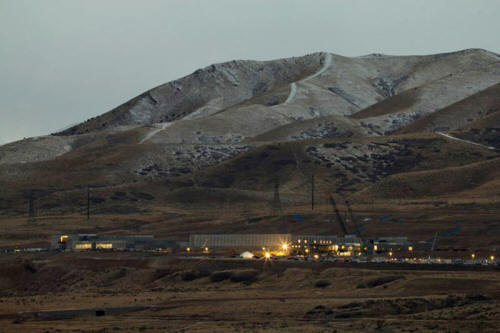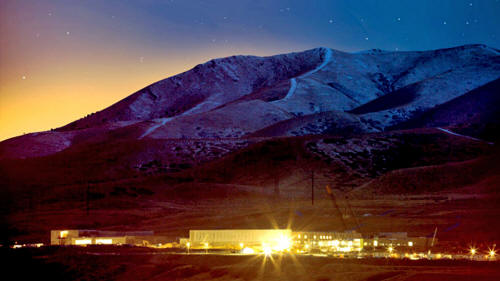|
from KSL Website
BLUFFDALE One of the biggest and most mysterious construction projects in Utah history is roughly halfway completed near the Point of the Mountain.
It's a vast computer center for one of the nation's most secretive agencies, the National Security Agency.
Critics joke that NSA really stands for "Never Say Anything." The secrecy surrounding the project has led to speculation it will become a vast storehouse of personal communications of average Americans.
The facility is 1 million square feet of space, with a price tag well above $1 billion; and it will have an appetite for electricity that would embarrass Godzilla. Computers and cooling systems at the NSA's Utah Data Center will reportedly consume $40 million worth of power each year.
The power company won't say if that widely reported estimate is valid.
Officials in Washington won't say what the data center is for, but the NSA did issue a vague statement saying it will,
That's a critical mission, according to NSA director General Keith Alexander.
But a Washington whistleblower says that's just a cover story for a serious threat to civil liberties.
William Binney worked for the NSA for 32 years. He still lives by the highly secure headquarters near Baltimore. Binney led a team in the 1990s that developed software designed to sort through mountains of electronic data.
It could slice and dice billions of emails, phone calls and Internet records, looking for clues to terrorist plots. But Binney's team built into the software sophisticated protections so that communications by U.S. citizens would be protected from NSA snooping.
When the NSA passed over his system, Binney retired in anger, right after the attack on the World Trade Center.
William Binney former NSA employee
He now suspects the facility in Bluffdale will be used to store incredible amounts of communication data so the NSA can sift through it, whether it's from foreign terrorists or law-abiding U.S. citizens.
Emails, cellphone calls, Google searches; Binney calculated how much data such a huge facility could hold.
That's an incredible number that most of us can't really understand, but Binney gave an idea of what it means.
Last summer, Gen. Alexander denied the thrust of Binney's accusations, calling the idea that they store data on U.S. citizens "baloney."
But in Senate testimony, FBI chief Robert Mueller recently revealed a new capability, searching "past emails," implying mass storage somewhere. Binney says his contacts inside NSA told him about surveillance of U.S. citizens.
Alexander did preserve the NSA's traditional cone of silence.
NSA's past controversial surveillance activity
No matter whom you believe about the Utah facility, the NSA's secretive activities have stirred up serious controversy in recent years, particularly electronic surveillance without warrants.
A highly classified operation of the NSA jumped into the headlines during the Bush administration and remains controversial today.
The veil of secrecy was pierced in 2005 when the New York Times revealed that NSA had been conducting wire-tapping, without warrants, on a widespread scale.
That revelation touched off a fierce debate in Washington, D.C., over the rights of citizens - what the law is and what the law should be.
In 2008, Congress amended the law, authorizing much of what the Bush administration was already doing: surveillance of communications by suspected terrorists, without warrants.
Under the law, Americans cannot be targeted, but if they're on the other end of a conversation with a foreign suspect, the NSA can listen in without a warrant.
That revised law is strongly opposed by civil libertarians.
But warrantless surveillance has bipartisan support in Congress, which is considering extending the law up to five more years. Senate Majority Leader Harry Reid, D-Nevada, told KSL News that it works well at "ferreting out terrorists."
Republican Sen. John McCain, R-Arizona, agreed.
But is that what will really go on at Bluffdale's huge new complex, once the computers and data servers start humming?
Frankly, we don't know because it's all a big secret...
|


